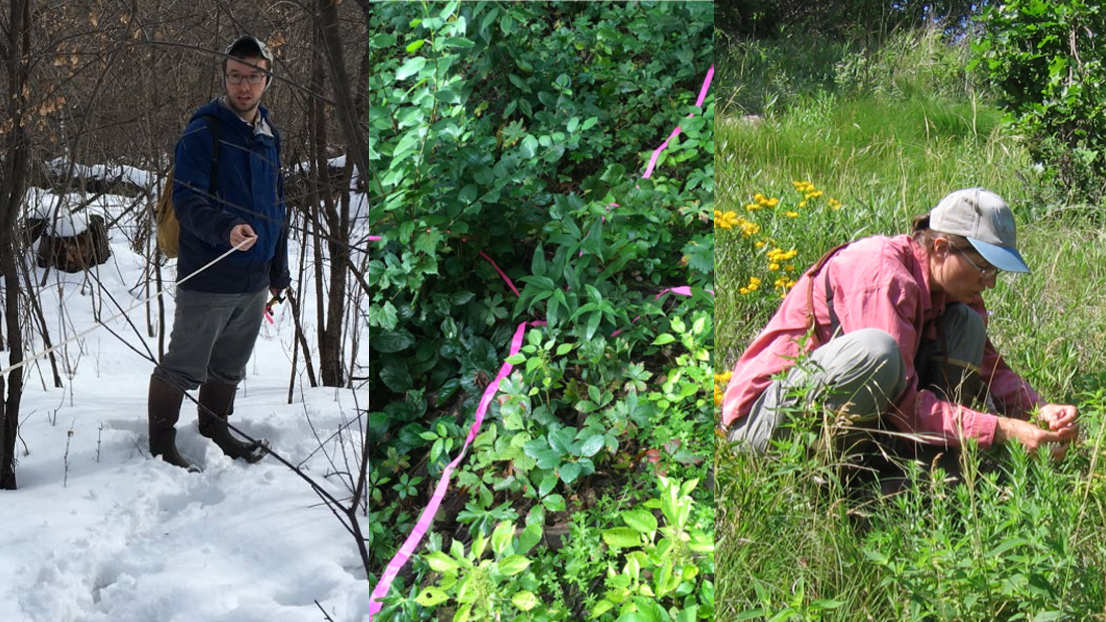FMR's ecologists investigate how to suppress buckthorn
Our ecologists investigate different methods for buckthorn removal. Finding a more effective way to eliminate buckthorn would save money and time, and most importantly, would stem this common invasive's negative ecological impacts on water and wildlife.
As anyone who's joined FMR at a restoration volunteer event knows, buckthorn is particularly difficult to eradicate. This invasive plant often thwarts restoration efforts by returning to sites where it's been pulled and hauled away. Wouldn't it be great if we could find a way to suppress its regrowth?
FMR's ecologist, Alex Roth, is among a group of researchers exploring how to do this using native plants.
Cover It Up, a project of the Department of Forest Resources at the University of Minnesota, studies if dense native forest cover might out-shade buckthorn after its initial removal. Some of the inspiration and foundational work for this project came from Alex's Ph.D. studies while at the U.
More about Cover It Up, funded by the Minnesota Invasive Terrestrial Plants and Pests Center (MITPPC), and Alex's research can be found in this recent MITPPC article.
In addition, Alex and FMR's senior ecologist, Karen Schik, are investigating how different buckthorn removal techniques affect native cover and buckthorn regeneration at Hampton Woods Wildlife Management Area in Dakota County. (FMR helped protect Hampton Woods in 2017 and have been helping to restore it since.) Determining which methods best promote native cover that competes with buckthorn could help land managers select management techniques that give forests a fighting chance.
